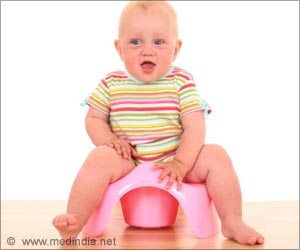A study conducted by a Brown Medical School professor and Rhode Island Department of Health family health experts say that postpartum depression is linked to fussy babies
A study conducted by a Brown Medical School professor and Rhode Island Department of Health family health experts say that postpartum depression is linked to fussy babies.
Pamela High, M.D., served as lead, a clinical professor of paediatrics at Brown Medical School and director of developmental-behavioural paediatrics at Hasbro Children's Hospital. Other members include Rhode Island Department of Health's Division of Family Health team, who provided data and analytical support, Hannah Kim, senior epidemiologist; Samara Viner-Brown, chief of data and evaluation and director of the Pregnancy Risk Assessment Monitoring System, or PRAMS; and Rachel Cain, PRAMS coordinator."We can't say that inconsolability causes depression or that depression causes inconsolability. However, we did find a link between the two. And this won't surprise anyone who knows a mother coping with a fussy baby. At the clinic, it is not unusual to see mothers who are very tired and sometimes very anxious and depressed. Moms are trying hard to understand their child's needs and meet those needs. Sometimes they feel inadequate when they can't console their baby, "says High.
The study revealed that 19 percent of mothers had moderate to severe symptoms of postpartum depression, and 8 percent said that their babies were difficult to console. Responses showed a strong connection between the two.
High also added, "Depression and inconsolability are strong predictors of one another. One in three women with fussy infants acknowledged that they were depressed."









